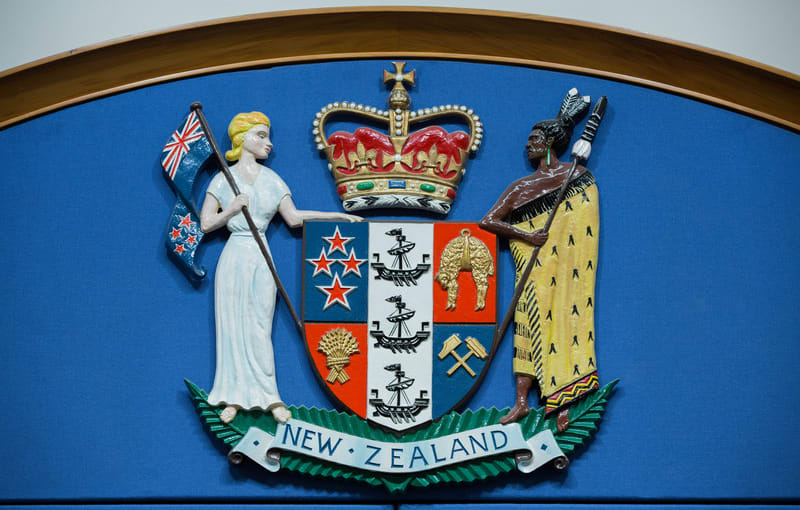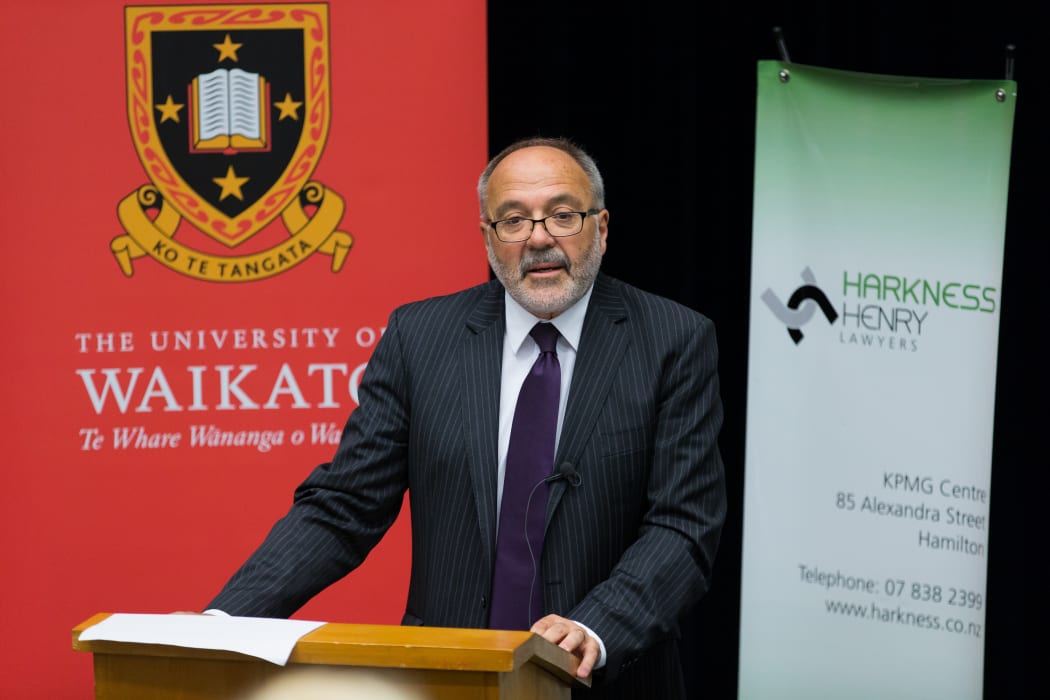The Ministry of Justice is to close six of its eight legal aid offices around the country.

Offices in Waitakere, Napier, Christchurch, Manukau, New Plymouth and Rotorua are due to shut, with operations to be centralised in Wellington and Auckland. Photo: RNZ / Cole Eastham-Farrelly
The announcement comes after a long-serving judge, Sir Ron Young, criticised legal aid funding cuts and a drop in the number of lawyers wanting to work in the area.
He said people's rights to fair representation were being eroded.
Offices in Waitakere, Napier, Christchurch, Manukau, New Plymouth and Rotorua will shut in the first half of next year.
Operations will be based in Wellington and Takapuna, in Auckland.
Ministry of Justice legal aid general manager Jacquelyn Shannon said it was making changes to the "way it administered the legal aid granting and debt functions".
"We are doing this because consolidating systems is more efficient and ensures a more consistent national service."
Ms Shannon said 72 full-time-equivalent positions were affected and there would be 69 new full-time-equivalent positions established.
But Christchurch barrister Liz Bulger said the move was a disaster, and would ruin the relationships legal aid lawyers had been building with people in their local communities.
"That potential for face-to-face meeting, or at least being able to get someone on the phone that you know if you're doing it by phone or by email, is really important.
"The centralisation means that all of those relationships and all of that goodwill and knowledge is gone in an instant."
Ms Bugler, who is also the Law Society's legal services committee convenor, said the ministry failed to consult with the society, and the wider legal sector, before announcing the closures.
Former judge's call to 'raise a stink'
Sir Ron yesterday issued a plea for the legal community to "raise a stink" about the state of legal aid, which he said had the potential to undermine the country's criminal justice system.
In a speech at Waikato University, he pointed to reduced payments made to lawyers for criminal legal aid work as a result of the Legal Services Act 2011.
Watch Sir Ron Young's 2016 Harkness Henry Lecture at Waikato University

Sir Ron Young used the 2016 Harkness Henry Lecture at Waikato University to discuss the state of legal aid. Photo: Supplied
The former judge rebuked the government saying it had reset the legal aid budget to the 2007/2008 level of $101 million.
It had been forecast to increase to $207m in 2014/2015, doubling in seven years, he said.
"The cost-cutting inherent in the 2011 legal aid reforms in some cases may have put a fair trial in jeopardy", Sir Ron said.
He questioned whether lawyers would be prepared to do all that was required to properly conduct a trial if that meant over a year they did hundreds of hours of unpaid work and earned $70,000 a year.
The Law Society recently found there was a drop in the number of lawyers willing to take on civil cases under legal aid arrangements in the last five years.
There was a 25 percent drop for family law, and a 12 percent fall for criminal law.
'Where's the experience in the legal aid system at the moment?'
Criminal Bar Association president Noel Sainsbury said in reality the figures were much worse.
"A very good example of that is the 'Introduction to Criminal Law' course, which I teach for the Law Society. It has to be done as a prerequisite for young lawyers doing legal aid work.
"[Over five years] numbers have dropped from at least 80 to 120 per year, [now] we would be lucky to see 20 people do each of the two courses, and half of those would be government employees doing prosecution or other work."
Mr Sainsbury said lawyers were choosing to work in commercial law or work for the government.
"It's not remunerated, it's incredibly stressful work, it involves a high level of expertise and they can get far more remunerative work for less stress in other areas."
He said someone could be found guilty when they were innocent, or vice versa, if the case was not properly put forward by an experienced defence lawyer.
"The state, which has still better resources to bring a prosecution, has an advantage that shouldn't be there.
"It undermines a protection that we have which is that the state has obligations to prove the charge to a high standard and that needs to be tested by competent lawyers.
"If they can't then you run the risk of there being convictions where they shouldn't be."
Mr Sainsbury warned there was a danger the public could lose confidence in the system.
"A lot of people who don't get involved in the criminal justice system and observe from the sidelines, they won't necessarily realise there is a problem until they or someone they know in their family becomes involved in a criminal case."
JustSpeak co-chair Julia Whaipooti agreed.
"It really does impact when almost half of the defence service now is resting in junior lawyers' hands. Where's the experience in the legal aid system at the moment?"
That disadvantaged Māori in particular, Ms Whaipooti said.
"We already know Māori have different outcomes than no-Māori, we know that Māori are less likely to show up to court and defend their charge than non-Māori, and if you lower the time and availability of defence lawyers as well it's only going to perpetuate that issue."
The Ministry of Justice's Jacquelyn Shannon said the legal aid system was designed to ensure people who could not pay for a lawyer were provided with legal representation in court.
It was never intended to be the sole source of income for lawyers who provided criminal legal aid, she said.




